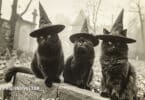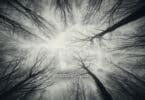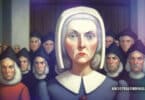The Ouija board has become a cultural touchstone, a mysterious object imbued with the power to fascinate, thrill, and terrify. Its letters, numbers, and simple planchette have allowed generations to attempt contact with the unknown. Over the decades, its reputation has shifted from an innocent parlor game to a feared tool of the supernatural, cementing its place in popular culture.
Spiritual Beginnings
In the late 19th century, spiritualism spread rapidly, especially in the United States. People were drawn to the idea of communicating with the dead, particularly after the emotional devastation of the Civil War. Many families had lost loved ones, and spiritualism offered comfort and hope. Seances were common, and professional mediums became popular figures in society, offering their services to help people connect with the spirits of the departed.
It was within this cultural context that the Ouija board first appeared. Created by Charles Kennard and Elijah Bond in 1890, the board was marketed as a tool for anyone to communicate with spirits directly—no medium required. It tapped into the fascination with the afterlife, and by simplifying the process of spiritual communication, the Ouija board quickly caught on as a novelty item. The name “Ouija” reportedly came from the board itself during an early session, with the board explaining it meant “good luck.”
William Fuld, a key figure in the commercialization of the Ouija board, took over the company and helped make it the commercial success it became. Although he didn’t invent the board, Fuld was instrumental in its popularity, making it a household name across America. Tragically, Fuld’s life ended in a bizarre accident—he died after falling from a factory roof, a building he said the Ouija board had instructed him to construct.
A Household Phenomenon
Throughout the early 20th century, the Ouija board became a pastime for families, couples, and curious individuals. It became a fixture in parlors across the country, where people would gather around the board and ask it questions about their lives, love, and the future. Norman Rockwell even featured the board on the cover of The Saturday Evening Post in 1920, demonstrating its integration into American domestic life.
The timing of the board’s popularity was no coincidence. After World War I, many people were dealing with loss, uncertainty, and the horrors of war. The Ouija board offered a comforting, almost playful way to engage with the unknown. It didn’t require the solemnity of a séance or the formality of consulting a medium. Instead, it provided a casual, fun way to explore the possibility of life after death.
In fact, the board was so popular that by the 1940s, stores across the country were reporting record sales. During World War II, with so much death and separation, people again turned to the Ouija board as a means of connection. One New York department store sold 50,000 boards in just five months. At a time when answers seemed elusive, the Ouija board offered a way to ask questions, even if the answers came from mysterious sources.
A Darker Side
Despite its widespread popularity, the Ouija board was not without controversy. Some stories circulating in the media painted a darker picture of the board’s influence. Newspapers reported sensational tales of crimes supposedly inspired by messages from the board. In one case, a woman claimed the board had instructed her to keep her dead mother’s body in her house for weeks. Other accounts of Ouija-inspired actions ranged from harmless to disturbing, feeding into the board’s eerie reputation.
The board’s legacy, however, took a dramatic turn in 1973 with the release of The Exorcist. In this film, a young girl becomes possessed by a demon after using an Ouija board, forever changing the public’s perception of the object. What had once been seen as a harmless game now became a feared tool of malevolent forces. The film, based on a supposed true story, sent shockwaves through audiences and reignited religious fears about the dangers of the occult.
From then on, the Ouija board was no longer just a game. Religious groups denounced it as a method of inviting demonic forces into the home. Some communities even held public burnings of Ouija boards, along with other items deemed occult or dangerous. The association with evil spirits persisted, and the board became a staple in the horror genre, appearing in numerous films and books as a tool for unleashing dark forces.
The Ouija Board Today
Despite—or perhaps because of—its association with the supernatural, the Ouija board has remained popular in modern culture. Its role in horror films, TV shows, and paranormal documentaries has kept it relevant to new generations of thrill-seekers and spiritual explorers. Today, the board can be found in everything from apps to clothing, and it continues to serve as both a game and a symbol of the unknown.
Interestingly, the popularity of the Ouija board tends to rise during societal uncertainty. Just as people turned to it after world wars and economic downturns, its use has surged recently. In moments of fear or doubt, many people are drawn to the board, searching for answers beyond the physical world. However, as Christians, we know that looking to such sources for guidance or comfort is spiritually dangerous.
What about the Ouija board that has kept it alive for over a century? Some might say it’s the mystery surrounding it and how it offers a glimpse into the unknown. But this is exactly where the danger lies. It may look like a harmless object—a board, a planchette, and some printed letters. But in practice, it is a tool that can open doors to dark spiritual forces, something the Bible warns us to avoid at all costs.
For many, the Ouija board is dismissed as a simple game, but we know it is far more than that as Christians. Scripture clarifies that seeking communication with spirits is forbidden (Deuteronomy 18:10-12), as it invites influences that are not of God. The Ouija board may seem like a curiosity, but it carries with it the potential for spiritual harm. It is a dangerous tool that should be avoided, not a game to be played.
We are called to find our answers and comfort in Christ, not in something that promises mystery but delivers only fear and confusion. The Ouija board may continue to hold a place in popular culture, but it should have no place in the life of a believer.
Read More:
Ouija: The Most Dangerous Game
Exalted by some and condemned by others, the Ouija is undoubtedly controversial. In this fascinating book, Stoker Hunt investigates the history and legacy of this “Mystic Talking Oracle.
Ouija Board Nightmares: The Complete Collection
This newest compendium contains the full editions of Ouija Board Nightmares, books one and two. It offers a sweeping thrill ride through the mysterious and hair-raising world of the Ouija. Real-life encounters with strange and terrible entities drive these tales of unearthly obsession, frightful oppression, and terrifying possession. Though the Ouija board may be marketed as a game, there are no winners in this activity—only victims.





